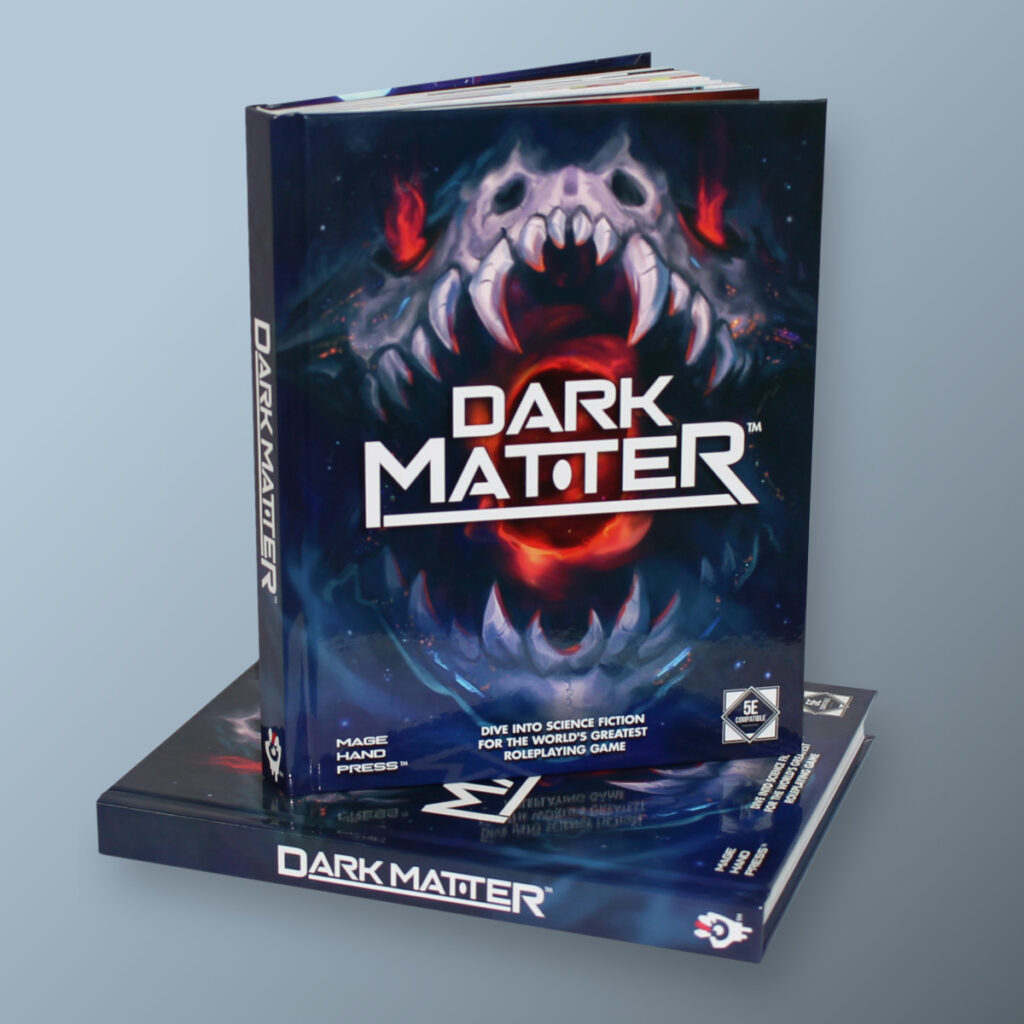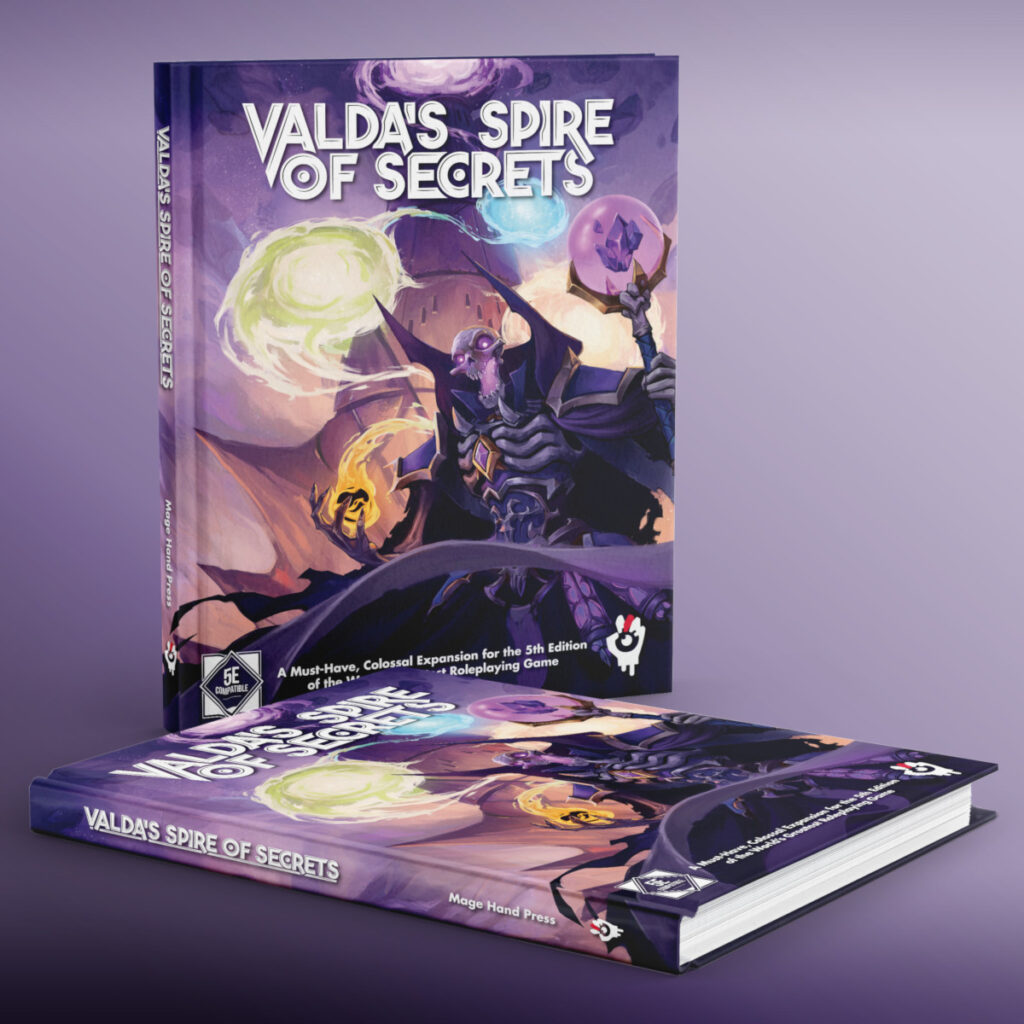Investigator
A collage of diagrams, maps, and small items litters the wall, pinned with nails and connected by a spiderweb of colorful strings. An elf stands nearby, contemplating the mystery splayed out in front of her and readying her crossbow for work.
A half-orc wearing a wide-brimmed hat leafs through a thick tome, double-checking the preparations: a sturdy net trap, holy symbols on the doors, cloves of garlic, and several dozen wooden stakes. The preparations made, the half-orc slinks into the shadows and readies himself for the bloodshed.
Blood dripping from its drool and claws, a monstrously fat demon bears down on a human, who busies herself marking a tavern’s door frame with a few chalkmark runes. She takes a long step back and waits. As the demon lunges for its next meal, an invisible force lashes forth from the doorway, lopping off its hand and raking its stomach. The fiend howls with rage, and the inquisitor breathes a sigh of relief.
Supernatural detectives and monster slayers, investigators are always on the hunt for malevolent outsiders. Whenever evil seeps into the world—be it fiends, undead, or strange abominations from beyond the stars—investigators will be the first to locate them and banish their foul corruption from the mortal plane.
Paranormal Investigators
There are forces more ancient than time, foes more sinister than the foulest men, and beings more titanic than gods. The world stands at a precipice of woe and terror, being threatened nightly by dark agents and hordes of monsters. At risk to their own lives and sanities, investigators penetrate the evil that creeps in the shadows and banish it from the world. Their battles are never-ending, for victory only delays doomsday another night.
Investigators track supernatural threats ranging from incorporeal spirits, to nefarious vampires and lycanthropes, to incursions of demons and devils. Often in their investigations, they uncover secret cults and maligned individuals who bring these supernatural threats to bear. It is always their goal to impede these evildoers by any means necessary, resorting to trickery, guile, magic, and bloodshed when necessary. To an investigator, no tactic is unthinkable when the world is at stake.
Exorcists and Occultists
Even as they strive to contain its influence from the world at large, investigators dabble in forbidden magic to give themselves an edge against supernatural threats. Prepared investigators keep a well-stocked grimoire of magical secrets, containing rituals, incantations, notes on monsters’ powers and weaknesses, recipes for poisons, and arcane diagrams—everything needed to confront their foes on an even footing. Even so, an investigator’s occupation is perilous. A grimoire might spell out a vampire’s fear of sunlight and aversion to silver, but it does little to hinder their fangs.
Creating an Investigator
As you build your investigator, consider what sort of supernatural threat first drove you to investigating and combating the occult. Did one of your family members strike a bargain with a fiend? Were you kidnapped by a cabal of vampires or a pack of lycanthropes? Did you stumble across evidence of an eldritch abomination, such as a Great Old One? The type of creature you first did battle with likely shaped your tools and methods later on.
Did you apprentice under a seasoned monster hunter, learning the ropes of tracking a threat, uncovering its weaknesses, and setting a trap for it? Or did you strike out on your own, compiling your own grimoire from hard-earned research? Perhaps you learned everything about monster hunting from someone else’s grimoire, a masterwork containing an abridged library of occult knowledge and a lifetime of experience. It’s even possible that you signed a contract with a minor fiend and turned to supernatural investigation in a last-ditch effort to save your soul.
Quick Build
Follow these suggestions to build an investigator quickly: Intelligence should be your highest ability score, followed by Dexterity or Strength. Then, select the rituals clue, comprehend languages, detect magic, and transient bulwark to add to your grimoire. Finally, pick any background, preferably one that relates to your experience with supernatural monsters and the occult.
| Level | Proficiency Bonus | Features | Ritual Level |
| 1st | +2 | Expertise, Ritualist | 1st |
| 2nd | +2 | Myths and Legends, Rushed Incantation | 1st |
| 3rd | +2 | Occult Specialization | 2nd |
| 4th | +2 | Ability Score Improvement | 2nd |
| 5th | +3 | Exploit Weakness | 3rd |
| 6th | +3 | Expertise, Occult Specialization feature | 3rd |
| 7th | +3 | Opportunistic Piety | 4th |
| 8th | +3 | Ability Score Improvement | 4th |
| 9th | +4 | Supernatural Resolve | 5th |
| 10th | +4 | Occult Specialization feature | 5th |
| 11th | +4 | Finisher | 6th |
| 12th | +4 | Ability Score Improvement | 6th |
| 13th | +5 | Enigma Arcane | 6th |
| 14th | +5 | Occult Specialization feature | 6th |
| 15th | +5 | Enigma Arcane improvement | 6th |
| 16th | +5 | Ability Score Improvement | 6th |
| 17th | +6 | Enigma Arcane improvement | 6th |
| 18th | +6 | Exorcist | 6th |
| 19th | +6 | Ability Score Improvement | 6th |
| 20th | +6 | Spellbinder | 6th |
Class Features
As an investigator, you have the following class features.
Hit Points at 1st Level: 8 + your Constitution modifier
Hit Points at Higher Levels:1d8 (or 5) + your Constitution modifier per investigator level after 1st
Weapons: Simple weapons, hand crossbows, heavy crossbows, longswords, rapiers, shortswords
Tools: One gaming set of your choice
Saving Throws: Dexterity, Intelligence
Skills: Choose three from Arcana, Athletics, Deception, History, Insight, Intimidation, Investigation, Medicine, Nature, Perception, Persuasion, Religion, Sleight of Hand, and Stealth
Equipment
You start with the following equipment, in addition to the equipment granted by your background:
- Leather armor
- A dagger and (a) a longsword or (b) a rapier
- (a) a heavy crossbow and 20 bolts or (b) a hand crossbow and 20 bolts
- (a) dungeoneer’s pack or (b) a priest’s pack
- A grimoire and a component pouch
Expertise
At 1st level, choose two of your skill proficiencies; your proficiency bonus is doubled for any ability check you make that uses either of the chosen proficiencies.
At 6th level, you can choose another two skill proficiencies to gain this benefit.
Ritualist
You maintain a grimoire brimming with magical rituals: your most potent tools to defeat supernatural threats.
Grimoire
At 1st level, you have a grimoire containing four 1st-level spells of your choice that have the ritual tag from any class’s spell list (the spells needn’t be from the same list). You can’t cast spells that are in your grimoire except as rituals, unless you’ve learned them by some other means.
Whenever you gain a level in this class, you can add an additional ritual spell from the Investigator Spells list to your grimoire at no cost. The Ritual Level column on the Investigator table shows the maximum spell level you can add to your grimoire.
Additionally, whenever you find a ritual spell on your adventures, you can add it to your grimoire if it is on the Investigator Spells list and is of a level you can add to your grimoire. For each level of the spell, the transcription process takes 2 hours and costs 50 gp for the rare inks needed to inscribe it.
Bonus Rituals
As an investigator, you can treat specific spells as if they had the ritual tag, allowing you to add them to your grimoire and cast them as rituals. These spells are marked in the Investigator Spells list.
Spellcasting Ability
Intelligence is your spellcasting ability for your ritual spells, since you master your spells through deduction and cunning. You use your Intelligence whenever a spell refers to your spellcasting ability. In addition, when you cast an investigator ritual or a spell offered to you by a feature in this class, you use your Intelligence modifier when setting the saving throw DC and making an attack roll.
Spell save DC = 8 + your proficiency bonus + your Intelligence modifier
Spell attack modifier = your proficiency bonus + your Intelligence modifier
Myths and Legends
At 2nd level, you are extremely adept at uncovering knowledge that pertains to eldritch threats and forgotten legends. You have advantage on Intelligence checks related to researching creatures, spells, and other ancient or secret lore.
Rushed Incantation
Beginning at 2nd level, you can hastily perform any ritual spell in your grimoire that has a casting time of 1 action or 1 bonus action, completing the ritual as a bonus action. If the spell requires material components worth 100 gp or less, you can cast it without providing those components. You can use this feature a number of times equal to your Intelligence modifier (a minimum of once), and you regain all expended uses when you finish a long rest.
As you gain higher levels in this class, you can use this feature additional times. You can use it once more at 5th level (Intelligence modifier + 1), 9th level (Intelligence modifier + 2), 13th level (Intelligence modifier + 3), and 17th level (Intelligence modifier + 4).
Occult Specialization
At 3rd level, you choose a specialization, an area of expertise in handling eldritch threats. Your specialization choices are detailed at the end of the class description. Your specialization choice grants you features at 3rd level and again at 6th, 10th, and 14th level.
Trinkets
Investigators also collect a number of supernatural trinkets. Once you use one of your trinkets, you can’t use this feature again until you finish a short or long rest.
As you gain higher levels in this class, you can use your trinkets additional times between rests: You can use them once more at 5th level (2 uses), 11th level (3 uses), and 17th level (4 uses).
Ability Score Improvement
When you reach 4th level, and again at 8th, 12th, 16th, and 19th level, you can increase one ability score of your choice by 2, or you can increase two ability scores of your choice by 1. As normal, you can’t increase an ability score above 20 using this feature.
Exploit Weakness
Most supernatural creatures have some form of weakness, a gap in their armor that allows them to be defeated. Starting at 5th level, once on each of your turns when you hit a creature with a weapon attack, the target is treated as if it has vulnerability to the weapon’s damage. Vulnerability from this feature only doubles your weapon’s damage roll and your ability modifier; you don’t double extra damage from sources like spells (such as hunter’s mark), magic items (such as the extra fire damage of a flame tongue), feats, or class features (such as Sneak Attack).
Additionally, the attack, as well as all other attacks made against the target until the start of your next turn, count as magical for the purpose of overcoming resistance and immunity to nonmagical attacks and damage.
Opportunistic Piety
By 7th level, you always keep a wide array of holy symbols and blessed items on your person, even if you aren’t particularly pious. When you use your Opportunistic Piety, you choose which effect to create from the list below. You must then finish a short or long rest to use your Opportunistic Piety again.
Banish. You cast the banishment spell without expending a spell slot. If the target is a Fey, Fiend, or Undead and fails its saving throw against this spell, it also takes radiant damage equal to your level.
Miracle Healing. As an action, divine light from your hands knit the wounds of a willing creature you touch. That creature regains a number of hit points equal to twice your investigator level. This ability has no effect on Undead or Constructs.
Warding. As an action, you trace a holy symbol on a creature within 5 feet of you, warding it against harm. For the next minute, Aberrations, Celestials, Fey, Fiends, and Undead that touch the warded creature or hit it with a melee attack take 1d12 radiant damage.
Supernatural Resolve
At 9th level, you gain resilience to the attacks and effects of the creatures you regularly investigate. You can’t be possessed or charmed, and you gain resistance to necrotic and psychic damage.
Finisher
Beginning at 11th level, you know exactly how to bring a monster down. Once on each of your turns when you take the Attack action and hit a creature with a weapon attack, you can deal an extra 2d8 damage to the creature. If the creature has less than half its hit points remaining, you can instead deal an extra 4d8 damage to the creature.
Enigma Arcane
At 13th level, you uncover a magical secret connected to a wellspring of potent magic. You can cast one of the following spells once without expending a spell slot: mirage arcane, plane shift, reverse gravity, sequester, or teleport. Once you do so, you can’t cast a spell in this way again until you finish a long rest.
At 15th level, you can also cast one of the following spells once without expending a spell slot: antimagic field, glibness, maze, or mind blank. Once you do so, you can’t cast any of these spells in this way again until you finish a long rest.
At 17th level, you can also cast one of the following spells once without expending a spell slot: astral projection, gate, or weird. Once you do so, you can’t cast any of these spells in this way again until you finish a long rest.
Exorcist
Beginning at 18th level, you can cast the protection from evil and good spell without expending a spell slot or material components.
Spellbinder
By 20th level, many rituals you perform have become second nature to you. Select five ritual spells in your grimoire with a casting time of 1 action. You can cast these spells as a bonus action without expending a use of Rushed Incantation, and you can do so without your grimoire on hand. If the spell requires material components worth 100 gp or less, you can cast it without providing those components.
Occult Specializations
Investigators of all stripes share the broad goal of combating the occult, but their methods vary wildly. Some emphasize cutting down monsters and banishing demons, while others believe that uncovering secrets and compiling critical information is the surest method for eliminating supernatural threats. When an investigator gains enough experience, they can steer their approach, including their specific techniques they employ and the trinkets they carry, into an occult specialization, a school of thought for handling eldritch threats.
| Name | Description |
| Detective | Chases down clues and unravels crimes with their impressive intellect |
| Exterminator | Hunts down vampires, lycanthropes, and beasts that stalk the night |
| Occultist | A magician borrowing spells from wizards and warlocks |
Investigator Spells
Investigators can add the following spells to their grimoires. Spells marked with an asterisk (*) are new to this class and spells marked with a dagger (†) are counted as if they had the ritual tag. This list is not exclusive; if you use additional ritual spells in your game that aren’t included on this list, you can add these spells to your grimoire and cast them as rituals.





Question to any and all who can answer this , but what lvl do you cast trinkets at (see antiquiter ) and if you cast buring hands with a arcivest can you up cast ?